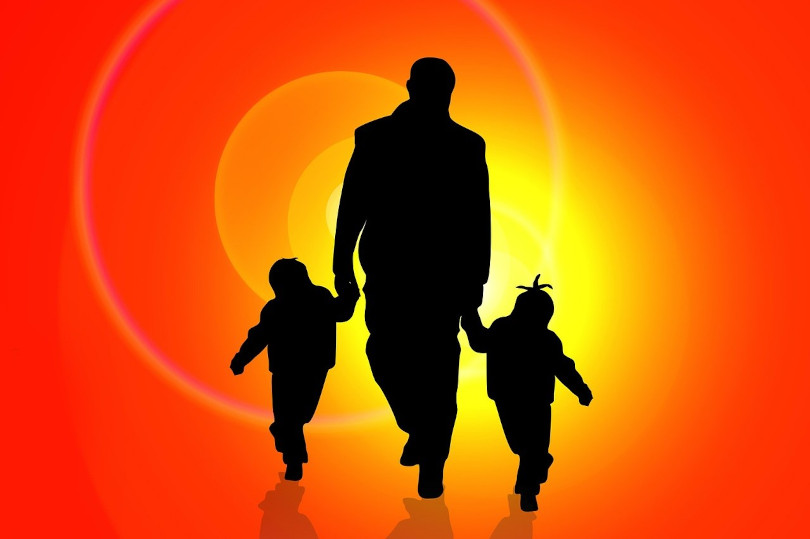Every third Sunday in June, Americans make a special effort to show their respect, appreciation, and admiration for their fathers. The preceding weeks see ties, barbecue grills, bottles of whiskey, golf clubs, and other fatherly items fly out of stores so that their eventual recipients might feel a little extra love on the coming Father’s Day.
While its widespread popularity and status as an annual occurrence might make it seem as if it’s as old as time, the United States actually only began recognizing Father’s Day as a national holiday just over fifty years ago. Even though it had been celebrated prior to being signed into law by President Richard Nixon in 1972, the holiday’s journey from theoretical inception to national recognition was a lengthy one. The gap between the first celebration and the first official celebration was sixty-four long years. An examination of those responsible for the holiday’s triumph gives us a few more people to celebrate in addition to the world’s fathers on the third Sunday in June.
Biblical Beginnings
It should first be noted that the practice of setting aside a day to celebrate one’s father is a tradition that vastly predates the first Father’s Day in America. In fact, it vastly predates America itself. In the early sixteenth century, and perhaps even earlier than that, European followers of the Roman Catholic Church began celebrating fathers and fatherhood on March 19, the feast day of Saint Joseph, who was Jesus Christ’s father. The Coptic Orthodox Church and the Eastern Orthodox Church also observed religious celebrations of fatherhood long before America had even been thought of, with the Coptic tradition potentially dating as far back as the fifth century.
The Catholic tradition of celebrating on March 19 was brought to Latin America by the Spanish and Portuguese (who still celebrate on this date) as they explored and conquered westward. Because of this, some Latin American countries continue to celebrate Father’s Day on this date, such as Bolivia and Honduras.
The Founding Mothers
One may be surprised to learn that the forefathers of the American observance of Father’s Day were actually not forefathers at all but foremothers. The first day commemorating fathers and fatherhood in the United States took place at the suggestion of Fairmont, West Virginia’s Grace Golden Clayton, on July 5, 1908. Due to a tragic coal mining disaster the previous year in nearby Monongah, which claimed the lives of three hundred and sixty-one men, over two-thirds of which were fathers, Clayton pitched the idea of a father-centric church service to her local minister to showcase her community’s love and appreciation for all fathers living and deceased. Clayton suggested July 5 because it was the closest Sunday to her late father’s birthday.
Two years later, Sonora Smart Dodd founded America’s first annually recurring Father’s Day celebration. The Spokane, Washington YMCA

held the first event on June 19, 1910. Like Clayton, Dodd initially suggested that the proceedings take place on her father’s birthday on June 5, but the ministers organizing the celebration settled on the third Sunday of June in order to allow more time for preparations. With this, the tradition of observing Father’s Day on the third Sunday of June was born, and Father’s Day began to enter the national conscience. In 1911, activist and social worker Jane Addams, who would go on to co-found the American Civil Liberties Union, tried but failed to establish a Father’s Day celebration in Chicago.
The Fight for Fathers
Despite Dodd’s years of activism in favor of the holiday, Father’s Day struggled for decades to achieve the recognition she sought for it. In 1913, a bill attempting to cement Father’s Day as a nationally recognized holiday failed to get through Congress. President Woodrow Wilson visited Spokane to speak at the city’s 1916 Father’s Day celebration and endorsed it for national recognition. President Calvin Coolidge pronounced his support for the holiday in 1924, even going so far as to urge state governments to follow suit.
Still, Dodd’s and politicians’ attempts to promote Father’s Day largely fell on deaf, skeptical ears that believed the holiday to be little more than an excuse for shameless commercialism and corporate greed. While Father’s Day’s roots have always been in sincere, deferential respect for fathers, there is some credence in this concern. One of Dodd’s primary collaborators in the fight to get the holiday nationally recognized was the Father’s Day Council, an organization composed of menswear retailers and greeting card companies that lobbied Congress in favor of the holiday for what one should think are fairly obvious reasons.
In other cases, fathers simply didn’t want a day for themselves. They likened the sentimental and gift-giving aspects of the proposed holiday to the already-established Mother’s Day and used this comparison to criticize Father’s Day as similarly effeminate. Senator Margaret Chase Smith of Maine challenged the holiday’s congressional detractors in 1957 by accusing them of supporting one parent of American households while completely ignoring the other.
The Guys Have It
After a half-century of public and political pushback, the following two decades finally saw fathers having their day. In 1966, President Lyndon B. Johnson recognized the third Sunday of June as Father’s Day, and President Richard Nixon signed the holiday into law six years later. It was a long time coming, but the fathers—along with several very persistent mothers—won out in the end. Dodd, fortunately, lived to see the fruits of her labor but died shortly thereafter in 1978.
The popularity of the holiday in America soon spread to other countries and resulted in the third Sunday of June being the most popular date for Father’s Day worldwide. Multiple countries in Europe, Asia, Africa, Central America, South America, and the Caribbean celebrate the holiday on this date because of the inaugural Spokane gathering one hundred and thirteen years ago and primarily because of the tireless efforts of Sonora Smart Dodd: the Mother of Father’s Day.


